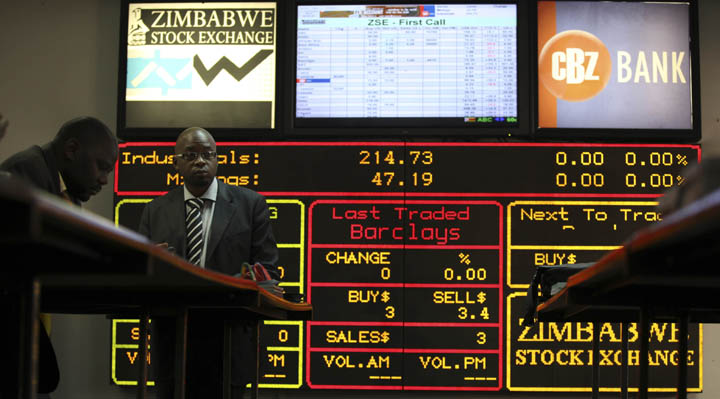Kenya’s stock market, the Nairobi Securities Exchange (NSE), is actively working to end a prolonged period of limited new listings. This effort comes as investor sentiment shows signs of improvement, fueled by a more stable economic environment and favorable government policies. For GenX readers who remember the robust market activity of past decades, this push marks a significant step towards revitalizing a key component of Kenya’s financial landscape.

The Nairobi Securities Exchange (NSE) is betting on cross-listings to boost activity on the stockmarket, which is going through a decade-long Initial Public Offering (IPO) drought.
The self-listed exchange says in its latest annual report (2023) that it plans to offer international investors leeway to tap into the region’s vibrant economy and burgeoning sectors such as technology, finance and consumer goods through cross-listing regional companies.
The NSE has only two cross-listed firms — Umeme Ltd from the Uganda Securities Exchange (USE) and Bank of Kigali (BoK) from the Rwanda Stock Exchange (RSE).
“As Kenya continues to position itself as a regional financial hub, cross-listings on the NSE will serve as a testament to its growing significance in the global investment landscape,” said Frank Mwiti, NSE CEO.
“Cross-listings will provide diversification benefits while fostering greater liquidity and depth in the market, ultimately enhancing NSE’s attractiveness to global investors.”
The NSE, established in 1954, has long been a barometer of Kenya’s economic health. Older GenX readers may recall the market’s heyday in the 1990s and early 2000s when initial public offerings (IPOs) were frequent, and investor enthusiasm was high. However, the past decade has seen a notable decline in new listings. Several factors have contributed to this listing drought, including economic instability, political uncertainty, and regulatory challenges.
The global financial crisis of 2008 and subsequent economic slowdowns hit many emerging markets hard, including Kenya. This period saw decreased investor confidence and a reduction in market activity. Political upheavals, including contentious elections and policy shifts, further dampened the market’s appeal. Additionally, regulatory changes intended to enhance market transparency and protect investors sometimes had the unintended effect of making the listing process more cumbersome and expensive for companies.
In recent months, however, there has been a noticeable shift in sentiment. The Kenyan government has implemented a series of measures aimed at boosting economic growth and stabilizing the political climate. These initiatives have included infrastructure development projects, efforts to combat corruption, and policies designed to attract foreign investment.
The NSE itself has not been idle. Recognizing the need to adapt to a changing financial landscape, the exchange has introduced several strategic initiatives. These include reducing listing fees, streamlining the regulatory process, and launching new products and services to attract a diverse range of companies and investors.
One notable initiative is the Growth Enterprise Market Segment (GEMS), designed to attract small and medium-sized enterprises (SMEs) to the exchange. SMEs are often seen as the backbone of the Kenyan economy, driving innovation and employment. By providing these companies with a platform to raise capital and gain visibility, the NSE hopes to invigorate the market with fresh listings.
Digital Transformation and Technological Advancements
Another key focus area for the NSE is digital transformation. For a generation that witnessed the rise of the internet and digital technology, the integration of these tools into financial markets is particularly relevant. The NSE has been investing in modernizing its trading infrastructure, making it more accessible and efficient.
Online trading platforms and mobile applications are now available, allowing investors to trade securities conveniently and securely from anywhere. These advancements are expected to attract tech-savvy younger investors, as well as GenX individuals who have embraced digital technology in their personal and professional lives.
Moreover, the NSE is exploring the potential of blockchain technology to enhance transparency and security in trading. Blockchain, the underlying technology behind cryptocurrencies, has the potential to revolutionize financial markets by providing a decentralized and tamper-proof ledger of transactions. This move aligns with global trends and positions the NSE as a forward-thinking exchange.
Encouraging Corporate Governance and Sustainability
In addition to technological advancements, the NSE is placing a strong emphasis on corporate governance and sustainability. Companies listed on the exchange are now required to adhere to stringent governance standards and report on their environmental, social, and governance (ESG) practices.
For GenX readers who have witnessed the growing importance of corporate responsibility, this focus on ESG is particularly significant. Investors today are increasingly looking to support companies that demonstrate a commitment to sustainable practices and ethical governance. By promoting these values, the NSE aims to attract a new wave of conscientious investors and enhance the overall credibility of the market.
Looking Ahead: Opportunities and Challenges
While the renewed optimism and strategic initiatives are promising, challenges remain. The global economic environment is still fraught with uncertainties, and Kenya’s political landscape can be unpredictable. Additionally, the success of the NSE’s efforts will depend on the willingness of companies to take the plunge and list on the exchange.
Nevertheless, the NSE’s proactive approach and the improving sentiment among investors provide a solid foundation for growth. For GenX readers who have experienced the market’s ups and downs, this period represents a potential turning point. The hope is that with continued efforts and favorable conditions, the NSE will once again become a vibrant hub for capital raising and investment, driving economic growth and prosperity for Kenya.
The Nairobi Securities Exchange’s endeavor to end the listing drought is a multifaceted effort involving government support, strategic initiatives, technological advancements, and a focus on corporate governance. As the market sentiment improves, there is cautious optimism that these efforts will bear fruit, heralding a new era of growth and opportunity for Kenya’s financial market and its participants.

